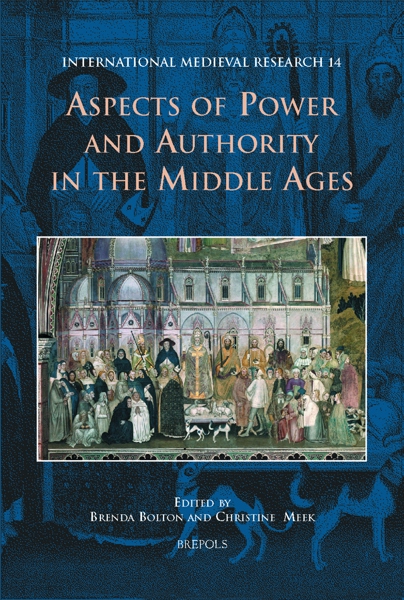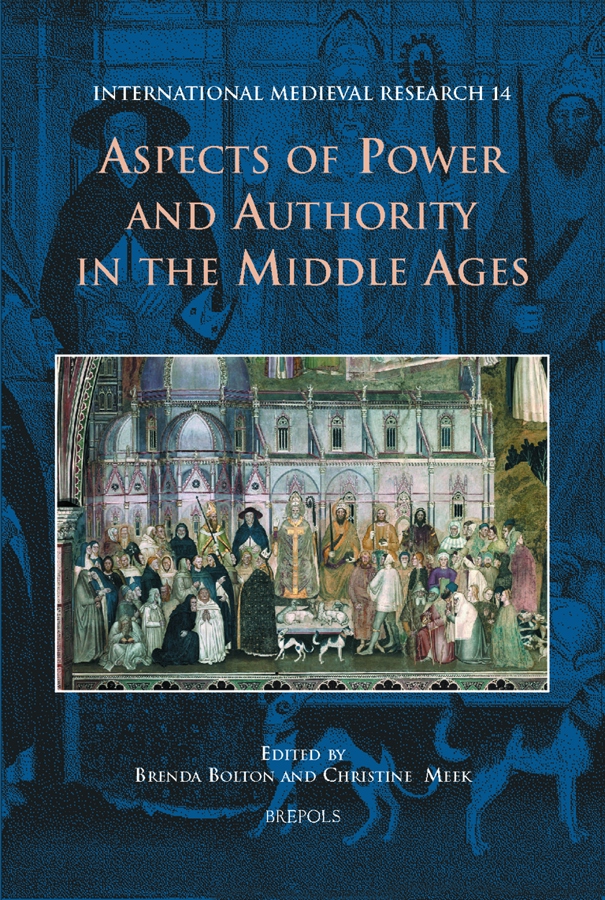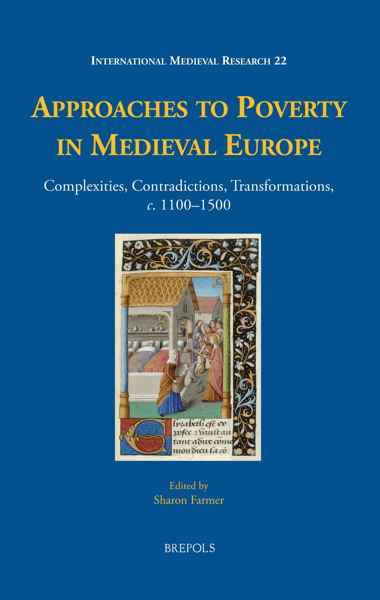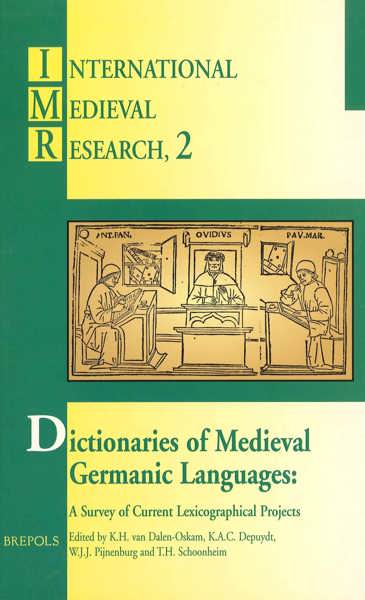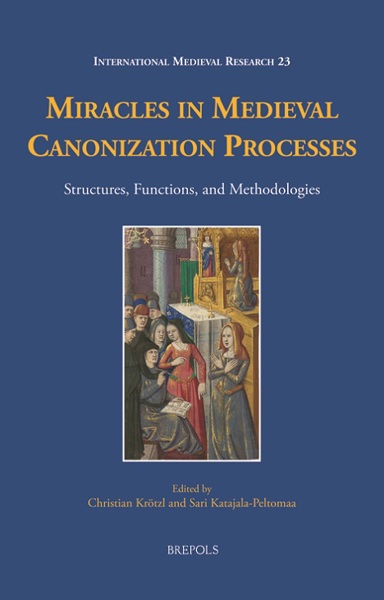
Aspects of Power and Authority in the Middle Ages
Brenda M. Bolton, Christine E. Meek (eds)
- Pages: 352 p.
- Size:160 x 240 mm
- Illustrations:29 b/w
- Language(s):English
- Publication Year:2008
- € 85,00 EXCL. VAT RETAIL PRICE
- ISBN: 978-2-503-52735-2
- Hardback
- Available
- € 85,00 EXCL. VAT RETAIL PRICE
- ISBN: 978-2-503-53789-4
- E-book
- Available
"This volume is a welcome contribution to a well-established historiographical trend which is questioning this portrayal."
(Pauline Stafford, in Journal of English and Germanic Philology 110/2, April 2011, p. 231)
Introduction
Creating an Image for a New Kingship: Charles I of Anjou, King of the Regno - Jean Dunbabin
Image-making for the Conquerors of England: Cnut and William I - Chris Dennis
Dress and Authority in the Bayeux Tapestry - Gale R. Owen-Crocker
Ostentation, Power, and Family Competition in Late-Medieval Rome: The Earliest Chapels at S. Maria in Aracoeli - Claudia Bolgia
‘Treasures of the Temple’ and Claims to Authority in Twelfth-Century Rome - Marie Thérèse Champagne
Authority and Maternity in Late-Medieval Castile: Four Queens Regnant - Bethany Aram
The Queen Consort in Late-Medieval Portugal - Ana Maria S.A. Rodrigues
‘A Woman of Subtlety and a Man’s Resolution’: Matilda of Boulogne in the Power Struggles of the Anarchy - Patricia Dark
The Power of Personal Networks: Clerics as Political Actors in the Conflict between Capetian France and the County of Flanders during the Last Decade of the Twelfth Century - Walter Ysebaert
‘I Know What You Did Last Summer’: Knowledge as Power among Parochial Clergy in Later Medieval England - Jeremy Goldberg
The Power of the Purse: Usury, Jews, and Crusaders, 1198–1245 - Rebecca Rist
Concepts of Power in Anglo-Scandinavian Verse - Jayne Carroll
Power, Poetry, and Violence: The Battle of Maldon - Alice Jorgensen
The Power of Documents: The Curious Case of Laudabiliter - Anne J. Duggan
The Authority of Documents in Early-Medieval Italian Pleas - Swen Holger Brunsch
Authorizing the Supernatural: An Examination of Some English Miracles around 1318 - R. C. Finucane
The Authority of Miracles: Caesarius of Heisterbach and the Livonian Crusade - Barbara Bombi
Saintly Power as a Model of Royal Authority: The ‘Royal Touch’ and Other Miracles in the Early Vitae of Edward the Confessor - Joanna Huntington
